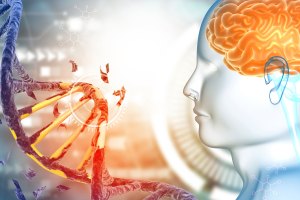Campus & Community
-
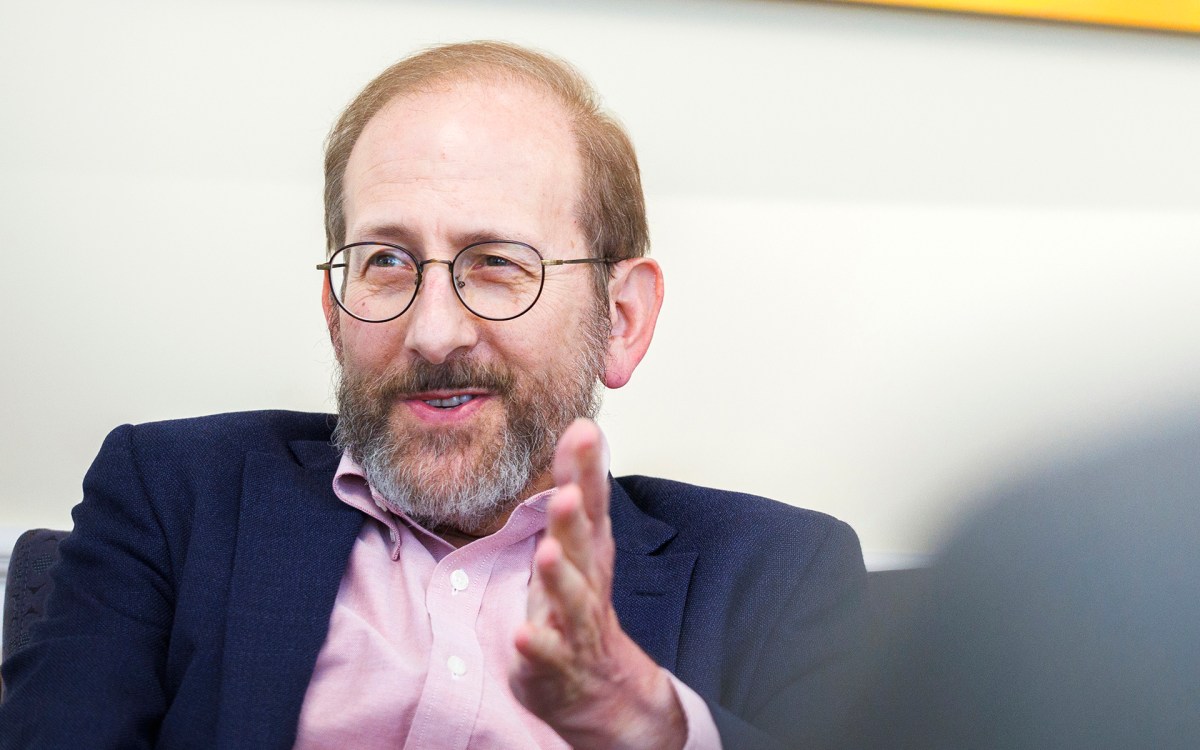
Garber to lead Harvard beyond 2026-27 academic year
‘Our progress has made me prouder than ever to be part of the University — and determined to see us through this uniquely challenging period in our long history.’
-
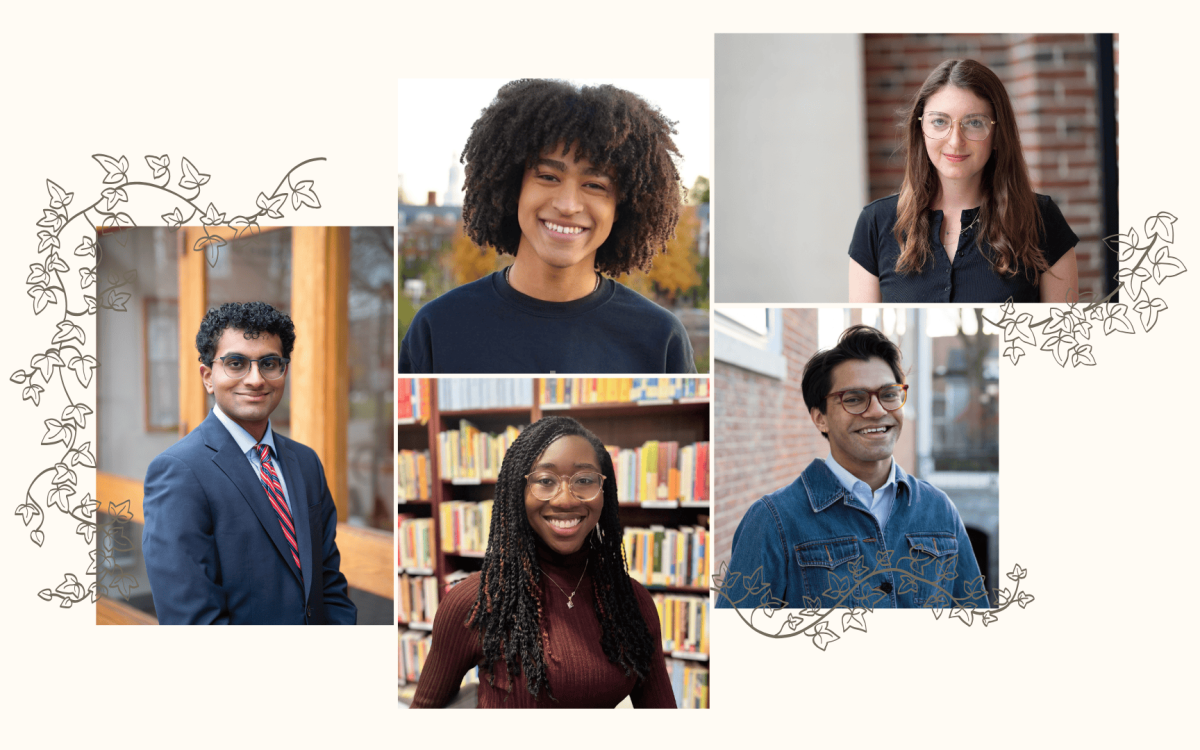
5 from Harvard named Marshall Scholars
Awards for 4 students, 1 alumna — more than any other institution — support graduate studies in the United Kingdom
-
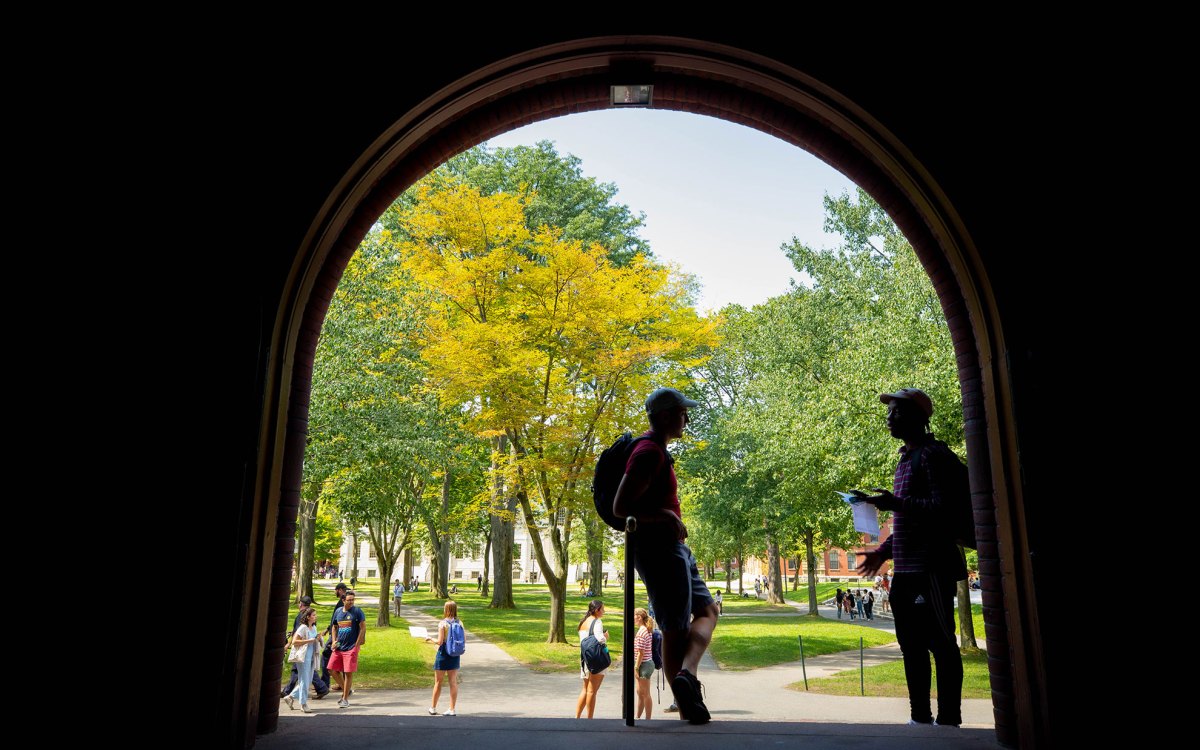
‘Our students are seeking not just to coexist, but to understand’
8 projects win Building Bridges grants to spark constructive dialogue on campus
-
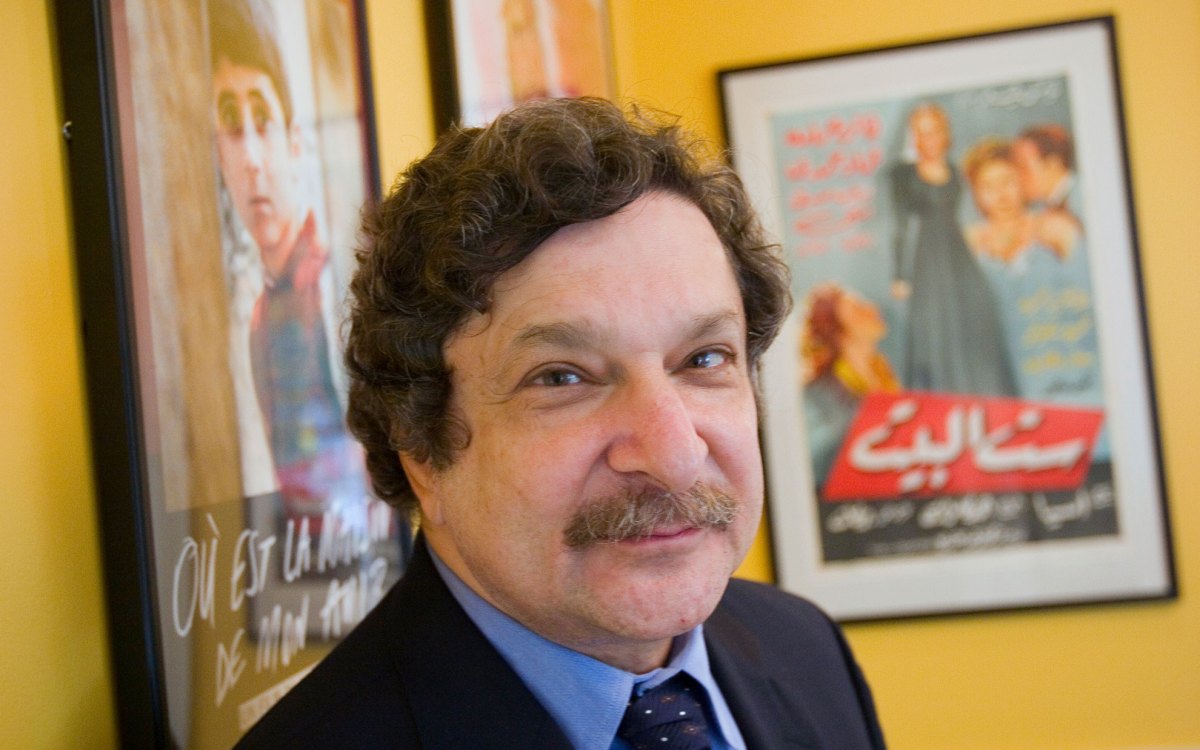
Roy Parviz Mottahedeh, 84
At a meeting of the Faculty of Arts and Sciences on Dec. 2, 2025, the following tribute to the life and service of the late Roy Parviz Mottahedeh was spread upon the permanent records of the Faculty.
-
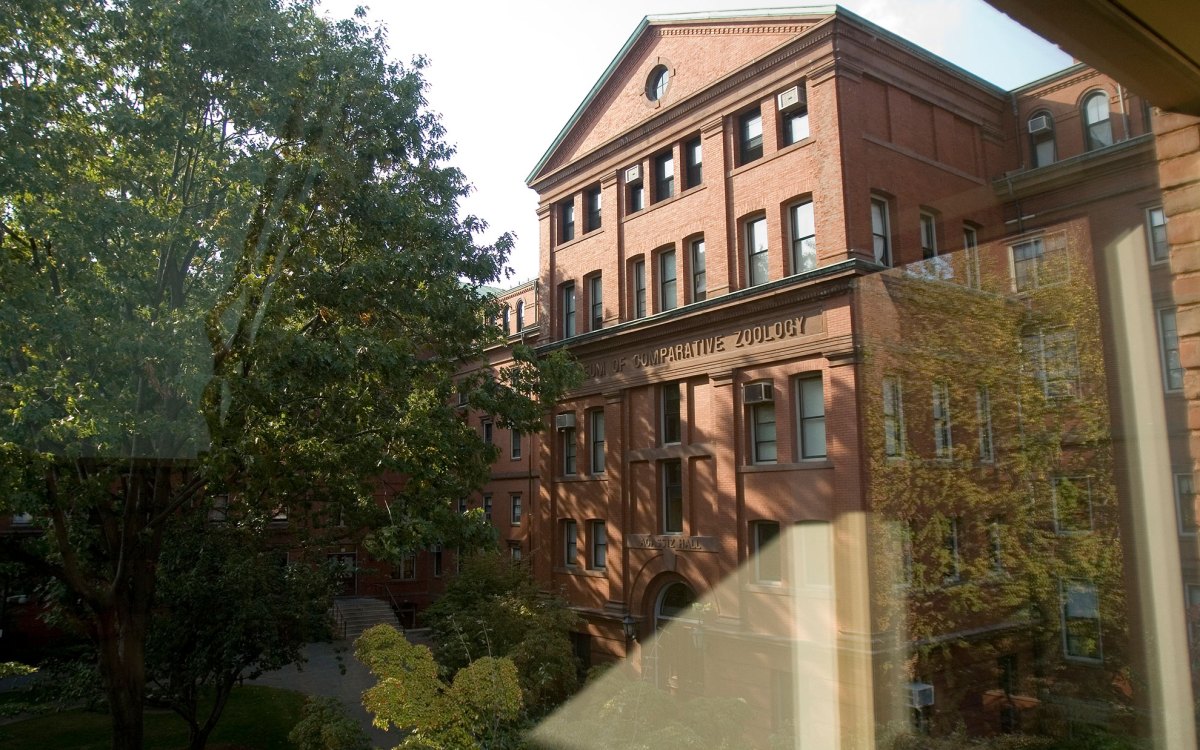
Karel Frederik Liem, 73
At a meeting of the Faculty of Arts and Sciences on Dec. 2, 2025, the following tribute to the life and service of the late Karel Frederik Liem was spread upon the permanent records of the Faculty.
-

‘Goodnight, sweet prince’
New holiday film reimagines couple’s searing grief over death of young son, how it inspired creation of ‘Hamlet’
-
KSG hosts Sino-Japanese dialogue
Can a roomful of Harvard students meeting for three hours on a Friday afternoon help to ease the deep historical tensions between China and Japan? Ronald Heifetz thinks so.
-
IOP announces 18 internship winners
The Kennedy School of Governments Institute of Politics (IOP) recently announced the selection of 18 undergraduate students, chosen from a pool of 185 candidates, for prestigious paid summer political internships. These students will meet and learn from leading academics, policy-makers, and politicians at high-profile organizations, furthering their understanding of and interest in politics and public affairs. In addition, the IOP is providing financial assistance to nearly 100 current Harvard undergraduates for help in securing public service summer jobs, as well as to rising seniors conducting summer thesis research.
-
Six professors named NEH fellows
Six Harvard professors joined nearly 200 scholars nationwide to be named recipients of a total of $7.4 million in fellowships from the National Endowment for the Humanities (NEH). The fellowships, announced this past February, are intended for individual research in the humanities.
-
When faith becomes ‘exclusivist’
The third McDonald Conference on Evangelical Theology began Friday night (May 6) with a keynote speech by Robert Wuthnow, a Princeton University professor of sociology and the director of the Princeton Center for the Study of Religion. Wuthnow has studied religion from the perspective of many disciplines, including economics, politics, arts, and psychology, and has written many books, including 1991s Acts of Compassion, for which he received a Pulitzer Prize nomination. Responding to his speech on Friday was Ronald F. Thiemann, a professor of theology and religion and society at Harvard Divinity School.
-
Weissmans send students ’round the world
For the past 12 years, the Weissman International Internship Program, established by Paul (52) and Harriet Weissman in 1994, has provided nearly 225 sophomores and juniors with the opportunity to participate in an international internship in a field of work related to their academic and career goals. The Weissman Program enables students to develop a richer understanding of the global community in which they live and work, and provides an opportunity for them to share their experiences with the Harvard community when they return.
-
Harvard Magazine names Ledecky Fellows for 2005-06
Harvard Magazines Berta Greenwald Ledecky Undergraduate Fellows for the 2005-06 academic year are John A. La Rue 07 and Elizabeth S. Widdicombe 06. The two were selected from a competitive evaluation of two dozen student writers applications.
-
Ambassador, scholar, composer Hunt
The Harvard community is invited to a performance of The Witness Cantata, composed by Swanee Hunt, former ambassador to Austria (1993-97) and director of the Women and Public Policy Program at the Kennedy School of Government. Coro Allegro – Bostons acclaimed chorus for members and friends of the gay, lesbian, bisexual, and transgender communities, directed by David Hodgkins – will perform the cantata May 13 in Sanders Theatre at 8 p.m.
-
Sports in brief
Tennis takes Ivy honors, set to battle Terrapins Women’s tennis recently swept the league’s top two honors with senior Susanna Lingman earning player of the year accolades and Celia Durkin…
-
Phillips Brooks House hosts ‘100 Years of Service’
The Phillips Brooks House Association (PBHA) held its fourth annual Public Service Celebration, titled 100 Years of Service in honor of the associations centennial, on May 6. The event included a reception and an awards dinner to honor graduating seniors with Stride Rite Senior Recognition Awards, Stride Rite Post-Grad Fellowships, and Houston-Moreland Awards.
-
HILR students honored for ‘dedication’
Seven members of the Harvard Institute for Learning in Retirement (HILR), all recent nonagenarians, were honored by University Marshal Jackie ONeill for their dedication to lifelong learning. The April 29 ceremony at the Harvard Faculty Club was attended by friends and family of the honorees, and by Dean Michael Shinagel of the Division of Continuing Education, HILR president Ellie Porter, and HILR director Leonie Gordon.
-
The art of the matter
In April you can go to New Orleans for a celebration of jazz, and in August you can head to Edinburgh for a nonstop multiweek theater fix. Lincoln Center has dance all summer. But all those art forms and more fuse with dazzling effects during the annual four-day celebration of the arts at Harvard. The 13th Arts First was held last weekend.
-
Pigeons saved by rump feathers
Alberto Palleroni was a pigeon-napper. At night he haunted silos and other roosting places, snatching hundreds of startled birds. Then, he and his friends would change their feathers. By carefully…
-
Drops in drops hold practical promise
A team of Harvard researchers has developed a technique that allows the precise formation of double emulsions – droplets within droplets – that offers new ways to deliver drugs, nutrients,…
-
Researchers induce heart cells to proliferate
In the best-documented effort to date, researchers from the Howard Hughes Medical Institute at Children’s Hospital Boston and Harvard Medical School have successfully induced adult heart-muscle cells to divide and…
-
Zaldarriaga probes universe’s start
Matias Zaldarriaga is peering back into time to find his roots – and the roots of everything else ever created. Zaldarriaga, named professor of astronomy in July, is an expert…
-
Vitamin B6 fights cancer
Vitamin B6 is involved in approximately 100 reactions in the body, including protein and red blood cell metabolism. The nervous and immune systems also need it to function efficiently. In…
-
Soyinka feted by fellow Nobel Prize winners
When Wole Soyinka, the first African writer to win the Nobel Prize in literature, turned 70, his native country of Nigeria celebrated his birthday with two solid weeks of festivities. Harvard could not fête the 1986 Nobel Prize winner in quite the same way, but it managed something equally impressive – a feast of words catered by three of the honorees fellow Nobel laureates.
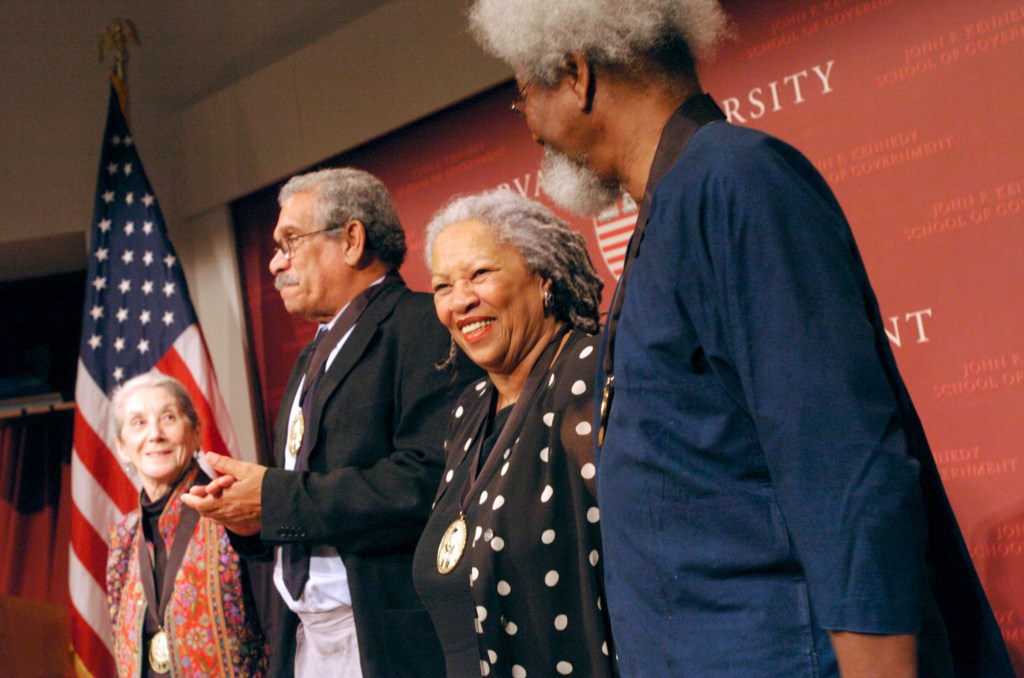
-
Special notice regarding Commencement Exercises
Morning Exercises To accommodate the increasing number of those wishing to attend Harvard’s Commencement Exercises, the following guidelines are proposed to facilitate admission into Tercentenary Theatre on Commencement Morning: Degree…
-
Police reports
Following are some of the incidents reported to the Harvard University Police Department (HUPD) for the week ending May 2. The official log is located at 1033 Massachusetts Ave., sixth floor.
-
President holds May office hours
President Lawrence H. Summers will hold office hours for students in his Massachusetts Hall office on:
-
Skiotis memorial service May 6
A memorial service for Dennis N. Skiotis, director of undergraduate studies at Harvards Department of History from 1985 to 1998, and associate director of the Center for Middle Eastern Studies from 1976 to 1985, will be held May 6 from 3 to 5 p.m. at Adams House, 26 Plympton St. Skiotis passed away Oct. 19 from complications of pneumonia after a long struggle with leukemia. He was 67.
-
Initiative to support cultural activities announced
President Lawrence H. Summers and Provost Steven E. Hyman have announced the launch of a new initiative to support artistic and cultural activities at Harvard University. Sean T. Buffington, currently assistant provost and deputy chief of staff, will become associate provost and director of cultural programs, effective July 1. An advisory committee will be convened in the fall composed of faculty and leaders of the Universitys cultural organizations.
-
Two Kennedy School alumni appointed to School
John Haigh M.P.P. 82 has been appointed executive dean at the Kennedy School of Government (KSG). Haigh previously served as senior vice president at Cingular/AT&T Wireless. While a student at KSG, Haigh focused on environmental policies, and following graduation, went on to work in the Schools Energy and Environment Policy Center. As executive dean, Haigh will serve on the Deans Leadership Team to manage day-to-day operations of the School.
-
Study bake
Students intermittently take in the sun and their studies in the Yard during one of the brief spurts of spring sunshine. Despite recent soggy conditions, Springfest pressed on as will Arts First this weekend.
-
Child-care scholarships, adoption help available
Applications for Harvards child-care scholarships for faculty, administrative and professional staff, and nonbargaining-unit support staff will be accepted until May 27. This program provides financial assistance for child care for children up to kindergarten age, and eligible after-school care for children of kindergarten age and older. Applications may be downloaded at http://harvie.harvard.edu/workandlife/children/scholarship.shtml#apsf.
-
Kennedy School to receive $15 million gift
At a time when the collaboration of business, government, and civil society has never been more critical for the success of nations and for achieving great public objectives, the John F. Kennedy School of Government has announced a $15 million agreement to endow the work at the Schools Center for Business and Government.
-
Massacre in Jedwabne re-examined at CES
Most people in the United States would be hard pressed to find the town of Jedwabne on a map, much less identify anything that happened there.
-
Newsmakers
Law and Society Association honors Sally Falk Moore The Law and Society Association recently awarded its Harry Kalven Prize for 2005 to Sally Falk Moore, the Victor S. Thomas Professor…
-
Sports in brief
Radcliffe crew captures Allen-DeWolfe Trophy In its final dual of the season, Radcliffe heavyweight crew bettered BU and MIT on the Charles to retain the Allen-DeWolfe Trophy. The Black and…
-
Arts to take center stage in campuswide fair
Bustling Harvard Square will resemble one giant stage for three days beginning May 5 during the annual Arts First Performance Fair. Sponsored by Harvard Office for the Arts (OfA), the annual fair celebrates students and faculty in the arts through more than 225 music, theater, dance, film, and visual arts events – most of them free of charge. This year will feature South African gumboot dancing, a Japanese tea ceremony, and a performance of Gilbert and Sullivan, among others.


